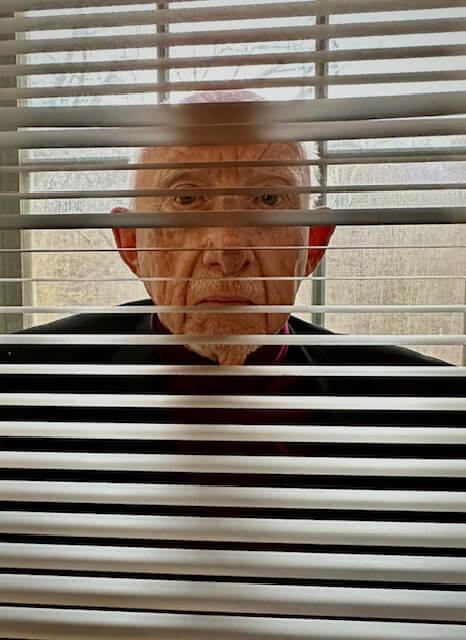Of all the things that happened in 2025 — a year dominated by the presidency of Donald Trump — not the least is that fear came to America.
It’s reminiscent of the fear that African Americans knew in the days of the lynch mob, or that Jews have felt from time to time, or that Hollywood felt during the blacklist of the 1940s and 1950s, or the fear that people of Japanese descent from the West Coast, who were mostly U.S. citizens, felt when they were rounded up and interred following the attack on Pearl Harbor.
For some, it is a low-grade fear of reprisals, financial ruin and humiliation. And for some, it is a fear of ruin by litigation. But for others, it is fear of faceless arrest, the jail cell and plastic handcuffs.
All of this has made us a nation in fear and removed our faith in our laws, our Constitution, and our plain decency.
This is a new kind of fear which is acute in places, such as immigrant communities, but more universal than in the past.
It isn’t the fear of a foreign power or an alien ideology or a disease, but a fear generated domestically — generated by our own government. Fear in our workplaces, our schools, our movie studios, our newsrooms and our universities.
For the first time, this year we saw troops on the streets of cities when there was no civil unrest — as there was, for example, during the riots of 1968 which followed the assassination of Martin Luther King Jr.
We saw troops deployed in cities where they weren’t wanted, opposed by the local government and local people. But those cities got the troops courtesy of a claim by the president that troops can manage law enforcement better than the local police. Or was there some more sinister purpose?
For the first time, we saw arrests without charge or evidence, carried out by masked ICE agents, of people simply suspected of being here illegally.
Often the suspicion is no more than the color of the arrestee’s skin, their dress and their demeanor. No crime needs to be proved by this army of the state, dressed to intimidate. To the ICE men and women, appearance is tantamount to conviction.
Nightly on television we watched agents drag away men, women and children without due process; they would be held and deported without charge, trial or having any avenue of appeal. Justice denied, nonoperational. Often deportees go to countries that are alien or different from their homelands.
Fear has come home.
Immigrants are frightened even if they are citizens. If you have olive-toned skin, you can be dragged and held incommunicado. No appeal, no trial, no court appearance, no access to help. Habeas corpus suspended.
Pinch yourself and ask: Is this the America we cherish for its freedom, its justice and its generosity of spirit?
The fear isn’t confined to those who might be swept up in the mindless cruelty of ICE but extends throughout society. People with stature fear that if they speak out, if they do what at other times they might have seen as their civic duty, they will endanger themselves and their families. All the government has to do is to start an investigation or threaten one and the damage is done, the first level of punishment is delivered.
Investigations can target anything from how you filled out a mortgage application to whether you wrote something which may be viewed as objectionable, and the punishment begins.
Fear stalks the schools where teachers and professors can be punished for what they say or teach, and where the institutions of higher learning are subject to political scrutiny. Politics has become the law, capricious and savage.
There is fear in business where so many companies rely on government loan guarantees or tax credits for their growth. There is fear that if they say anything that can be construed as disloyal, they will be punished.
Political opponents fear that their mortgage applications may be deemed to be irregular and they are to be censured or prosecuted. Political prosecution is now a government tool.
Others just fear that Trump will ridicule them in public with his schoolyard denigrations, particularly members of Congress. They fear they will be reprimanded and marked for defeat in the polls.
There is an awful completeness about the Trump rampage: his systematic ignoring of norms, shredding of the rights of the individual, destroying families and bringing about untold misery.
A question for all America: How is the spreading of fear — sometimes an acute fear and sometimes low-grade fear — throughout society beneficial and to whom?
We, the people, deserve to know.









